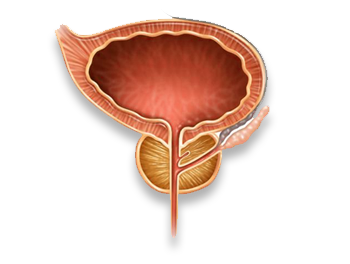PSA (Prostate-Specific Antigen)
What is PSA (Prostate-Specific Antigen)? Conditions Elevating PSA, PSA Volatility, Age-Specific PSA, Freet PSA
PSA is an enzyme that liquefies sperm. Basically, it is secreted by the cells lining the inside of the prostatic ducts and acini. PSA is mostly a prostate-specific enzyme; however, it is also secreted in very low amounts by pancreas and salivary glands. The PSA concentration in the sperm is a million times greater than its level in the blood.
PSA enters the bloodstream when integrity of prostatic cells and basement membrane is disrupted. Passage of PSA to blood can be seen in benign prostate diseases that disrupt its normal structure and prostate cancer.
Conditions elevating PSA level
| Clinical Condition | Effects on serum PSA level |
| Catheterization |
Low |
| Exercise |
None |
| Hemodialysis |
None |
| Digital Rectal Examination |
None |
| Cystoscopy |
Low |
| Urinary Retention |
Short-term rise |
| Ejaculation |
Yükselir (48 saat) |
| Prostate Massage |
Rises (3 day) |
| Transrectal Ultrasound |
Rises (7 day) |
| Prostatitis |
Rises (4-6 week) |
| Prostate Biopsy |
Rises (6 week) |
| Prostate Surgery (TURP) |
Rises (6 week) |
Table 1. Effects of Clinical Conditions on Serum PSA Levels
PSA velocity, Age-specific PSA and free PSA
Specificity and significance of PSA in prostate cancer screening is decreased by the fact that PSA levels can also increase in case of certain diseases like BPH (benign prostate hyperplasia) and prostatitis (prostate infection). Therefore, many additional supportive tests have been developed and are used in order to make the PSA test more accurate. Most commonly used tests are PSA density, PSA velocity and free PSA tests.
PSA Density
It is calculated by dividing the PSA value by the prostate volume. Biopsy is recommended if PSA density value is 0.15 or above in men having a PSA level of 4-10 ng/ml.
PSA Velocity
It is the rate of increase of the serum PSA level in a given time. Sharp PSA increases in a given time raises the possibility of prostate cancer. Studies conducted report cancer detection specificity as 90% and sensitivity as 80% in case of annual increases greater than 0.75 ng/ml in patients having a PSA level of 4-10 ng/ml.
Free PSA
Free PSA indicates the rate of PSA circulating freely in the blood without being bound to proteins. 65-95% of the serum PSA is protein-bound. These proteins are mainly alpha-1 antichymotrypsin and alpha-macroglobulin (Figure 1). The remaining 5-35% of the PSA circulates through the body on its own, without being bond to proteins. Free PSA levels are affected by age, prostate volume and indirectly by total PSA levels. The %f-PSA value is calculated by dividing the free PSA by the total PSA. The lower the %PSA is the higher the chance of prostate cancer is. Prostate cancer patients have higher amounts of protein-bound PSA in their blood compared to healthy people. Therefore, prostate cancer patients have lower amounts of free (unbound) PSA.
Book an Appointment with Dr. Fatih Atug
Cantact Dr. Fatih Atug
Fatih Atug, M.D.
Urologist and Robotic Surgery Specialist
hidden +90 212 234 5958
hidden +90 532 234 5504
hidden info@fatihatugmd.com
hidden Harbiye Mahallesi, Maçka Caddesi,
Bahriye Apt. No:13 D: 3
Şişli / İSTANBUL
 |
 |
 |




